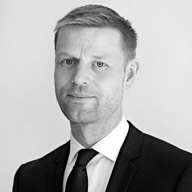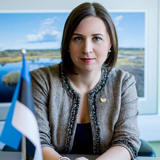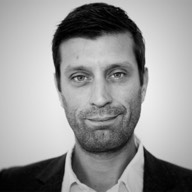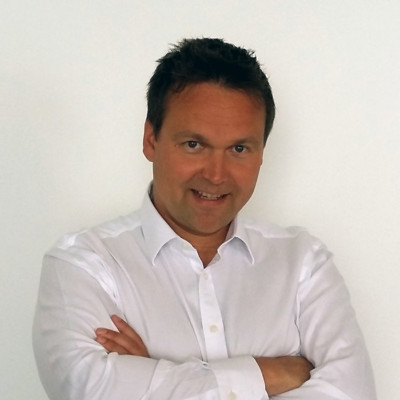Make your II pillar grow faster
From 2024 onwards, you can apply to increase your II pillar payments to as high as 6% of your gross salary, compared to the previous 2%.
What does increasing II pillar payments mean for you?
How does the calculator work?
Expected returns depend greatly on the evolving rate of return, and neither we nor anyone else are able to guarantee a 7% annual return.
In 2024, income tax rate is 20%.
In 2024, annual income up to 14 400 euros gives 7848 euros as annual basic exemption, if annual income increases from 14 400 euros to 25 200 euros, basic exemption decreases according to the following formula: 7848 – 7848 ÷ 10 800 × (income amount – 14 400), if annual income is above 25 200 euros, basic exemption is 0.
Assumptions
2025 income tax rate
22%
2025 basic exemption per month
up to 700 €
Retirement age
65 y/o
What will change and when?
So far, people have contributed 2% of their gross salary to the II pillar, and the state has added 4% to it.
Starting from January 1, 2025 contributions to II pillar can be made at 4% or 6% of the gross salary instead of the usual 2%. In case of all three options, the state adds 4% of the social tax to the II pillar.
The default contribution rate remains at 2%. The application to increase or decrease the payment rate can be submitted at any time. The payment rate changes once a year on January 1st based on the applications submitted by the end of November. To increase the payment rate from January 1, 2025, you can submit an application from January 1 to November 30, 2024.
Why should I increase II pillar payments?
Pensions are low in Estonia. Our average pension is almost 40% of the average salary, but the European Union average is much higher. So, saving money is essential for a comfortable retirement. How much should you save? Unfortunately, there is no right or wrong answer here. It depends on your capabilities and expenses. The earlier you start, the lower the monthly savings rate must be. In any case, the future you will be grateful for every euro saved for retirement.
Pillar II or III?
Both options can be useful and there is no significant difference. To secure the future, it may be wise to use both, but the table in the knowledge bank can help you make a decision.
Take action now
It’s you who can do the most when saving for retirement. The more you contribute to the II pillar, the faster your money will grow there. If your salary increases, the II pillar contributions also increase. Now you can also decide what percentage of your salary will accumulate there. The higher the percentage, the faster your savings will grow. Make sure to take advantage of this opportunity.
Frequently asked questions
The state adds 4% to the II pillar on account of the social tax paid from your salary, and this in case of a contribution of 2%, 4% or 6% determined by you.
An application to increase or decrease the payment rate can be submitted at any time, but the payment rate changes once a year on January 1st based on the applications submitted by the end of November at the latest.
The payment rate changes once a year on January 1 based on the applications submitted by the end of November at the latest.
Both options can be useful and there is no significant difference. To secure the future, it may be wise to use both, but the table in the knowledge bank can help you make a decision.
Please note that the increase in the II pillar contribution will only take effect from January 2025. If you want to save earlier, start saving in the Tuleva III Pillar Pension Fund or increase your III pillar payments.
Is our money in Tuleva as protected as in bank’s pension fund?
YES!
Financial Inspection
issued a licence to Tuleva fund manager and controls that our everyday operations comply with regulations.
Swedbank
is Tuleva pension funds’ depositary bank. Depositary bank approves every transaction with fund’s assets. Exactly like with bank’s own funds.
State guarantee fund
protects all pension fund investors against the worst in case fund manager causes harm to investors.
Founding members

Tõnu Pekk
Tõnu Pekk is an investor with 20 years of experience, a good deal of it from the international financial sector. Having led development projects and managed investments, he is currently fund manager at Tuleva.

Priit Lepasepp
Priit Lepasepp's everyday work is aimed at increasing renewable energy generation, and he also serves as one of Tuleva’s legal advisers.

Indrek Neivelt
Indrek Neivelt is the founder of Pocopay. He has been in a leading role at Hansabank and other large financial institutions in previous decades, and is now putting his knowledge to work for developing better, simpler payment solutions.

Daniel Vaarik
Daniel Vaarik has dedicated his career to ensuring that people get clearer and better information they need for making important decisions. He is currently a partner at Akkadian communication agency.

Kristo Käärmann
Kristo Käärmann is a co-founder of Wise. Having witnessed inefficiency in the financial sector, Kristo is helping to lead a revolution in the way money is moved, making currency exchange easier, clearer and more transparent all around the world.

Mall Hellam
Mall Hellam is the director of Open Estonia Fund. Mall’s activities are aimed toward making Estonia more open and tolerant, fostering serious discussion on key questions and building a robust civil society.

Kirsti Pent
Kirsti Pent is a partner with FORT law offices. Kirsti specializes in financial regulations, helping clients develop clear, specific solutions for financial transactions. She is also one of Tuleva’s legal advisers.

Indrek Kasela
Indrek Kasela is an entrepreneur and investor. Indrek has longstanding experience in large corporations and has also been busy developing the cultural sphere.

Annika Uudelepp
Annika Uudelepp is a civil society and governance expert with the Praxis think tank, and has long been spotlighting and helping to address issues of concern in Estonian society.

Henrik Karmo
Henrik Karmo is an investor with a broad set of experiences in building various investment companies and developing investment strategies.

Taavi Lepmets
Taavi Lepmets is an investor. Since the 1990s, Taavi has been investing into early-phase technologies, and is still on the lookout for new avenues today.

Taavet Hinrikus
Taavet Hinrikus is a co-founder of Wise. Taavet believes in simple, clear and transparent solutions and is helping to make money transfers and currency exchange easier and more convenient for everyone.

Loit Linnupõld
Loit Linnupõld is the founder of Crowdestate. Boasting longstanding experiences in the financial sector, he is helping to bring investors and real estate developers together to develop Estonian investor culture and develop access to capital.

Veljo Otsason
Veljo Otsason is a co-founder of Fortumo and Mobi and an angel investor in more than 15 companies. Veljo’s passion is new technologies: his companies help create better wireless services and payment and authentication systems.

Rain Rannu
Rain Rannu is a technology entrepreneur and investor, and a founder of Fortumo and Mobi. Rain’s passion is enterprise and developing new ideas, and likes projects that would not exist without him.

Sandor Liive
Sandor Liive’s passion lies in the energy sector. Sandor served as CEO of the state energy company Eesti Energia for many years and now is engaged in developing new solutions in the energy sector.

Heikko Mäe
Heikko Mäe is an auditor with a passion for getting things done in a meticulous manner. Heikko shared his knowledge and experience in creating Tuleva funds

Gerd Laub
Gerd Laub is a legal adviser at Funderbeam. With a background in law, he specializes in providing consultation to financial companies and helps to solve complicated problems in the financial technology sector.

Triinu Tombak
Triinu Tombak provides financial and business advisory services. She currently serves on the supervisory boards of the power utility AS Harju Elekter and the think tank Praxis.

Kadi Lambot
Kadi Lambot is a doctor who has served as CEO of a number of large enterprises. Kadi believes that the medical system needs comprehensive, user-friendly solutions and works to that end as member of the supervisory board of the Cancer Society, Healthy Estonia Foundation, and Tartu University Foundation.

Allan Kaldoja
Allan Kaldoja is an entrepreneur. His passion is developing CSOs. As supervisory board chairman, he was instrumental in getting SA Vaba Lava (Open Stage Foundation) off the ground.

Jaak Roosaare
Jaak Roosaare is an investor and the author of Rikkaks Saamise Õpik, which translates as a primer on how to get rich. Jaak devotes his time to making Estonians financially savvier, so they could make better financial decisions and enjoy a better life.
What are your rights and obligations as a Tuleva member?
Every member has the right to:
- Have access to important documentation pertaining to all activities of the association
- Participate in the general assembly and other Tuleva events
- Elect Tuleva management and apply for management positions
- Participate in Tuleva’s profit sharing based on predetermined rules
- Use Tuleva’s services and participate in members’ information sharing (for example via e-mail or in our closed Facebook group)
- Leave the association (after 5 years of membership have passed)
- Leave their assets as an inheritance to their designated heir
Every member has the obligation to:
- Comply with laws and follow the decisions made by Tuleva’s managerial board
- Pay a one-time membership fee
- Keep Tuleva’s business secrets
- Pay additional fees if decided so by the general assembly*
* This obligation has been included in our articles of association in the unlikely event that Tuleva has an unexpected need for additional capital. If a member refuses to pay additional fees which have been decided upon by the general assembly, they will lose their membership status.